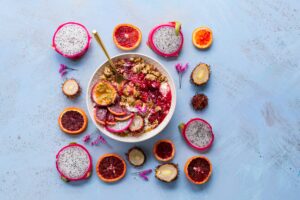
by gdadmin | Feb 5, 2025 | Uncategorized
A Milestone in Holistic Wellness
This year marks the 15th anniversary of Docere Wellness Centre, a significant milestone in our commitment to providing comprehensive, patient-centered care in Calgary, Alberta. Over the past decade and a half, we’ve dedicated ourselves to educating the community on disease prevention and the maintenance of optimal health through holistic approaches. As we reflect on our journey, we are filled with gratitude for the trust and support of our clients, staff, and the broader Calgary community.

The Inception: A Vision for Integrative Health
Fifteen years ago, Docere Wellness Centre was founded with a clear mission: to facilitate the body’s innate healing capabilities by offering the best healthcare for the entire family. Our vision was to inspire individuals to take an active role in caring for their mind, body, and spirit.
Why We Started
We recognized the need for a healthcare model that not only addresses symptoms but also delves into the root causes of health issues, promoting long-term wellness. Over the years, we have remained committed to this philosophy.
Evolving with the Holistic Wellness Landscape
Over the years, the field of holistic health has seen significant advancements. At Docere Wellness Centre, we’ve continually adapted to incorporate these developments into our practice.
Our Expanding Services
Our services have expanded to include a diverse range of therapies aimed at supporting our clients’ health and well-being at every life stage:
- Naturopathic Medicine: Combining effective traditional therapies with current advances in modern medicine, our naturopathic approach focuses on personalized treatment plans.
- Holistic Nutrition: Our holistic nutritionists educate and assist clients in maintaining a healthy quality of life.
- Life Coaching: We empower clients to maximize their personal and professional potential.
- Reiki: A holistic therapy that stimulates natural healing abilities.
- Massage Therapy: Enhancing circulation and promoting healing through targeted techniques.
- Psychological Services: Providing a safe space for mental wellness and emotional support.
- NAET (Nambudripad’s Allergy Elimination Techniques): A non-invasive method to eliminate allergies.

Transforming Lives: Success Stories of Holistic Wellness
The true measure of our success lies in the countless individuals whose lives have been transformed through our care.
What Our Clients Say
We’ve had the privilege of guiding clients on their journeys to overcome chronic health challenges, achieve optimal wellness, and embrace healthier lifestyles. Their testimonials highlight the effectiveness of our holistic, patient-centered approach and the dedication of our practitioners.
Lessons Learned: The Importance of Personalized Care
Throughout our 15-year journey, we’ve learned that personalized care is paramount. Each individual is unique, and a one-size-fits-all approach does not suffice in healthcare.
A Holistic Wellness Approach to Healing
By listening attentively and creating collaborative partnerships with our clients, we’ve been able to treat the whole person, not just the illness. We prioritize addressing root causes rather than merely alleviating symptoms.
Looking Ahead: The Future of Docere Wellness Centre
As we celebrate this milestone, we remain committed to evolving and expanding our services to meet the changing needs of our community.
Our Plans for Growth
We plan to introduce new therapies and wellness programs, continue our focus on education through workshops and our updated blog, and strengthen our collaborative partnerships within the healthcare community.
Join Us in Celebration: Special Anniversary Offers
To commemorate our 15th anniversary, we’re excited to offer exclusive promotions to our valued clients:
We appreciate you, and what better way to show our gratitude than with an exciting GIVEAWAY!
One lucky winner will receive a 15-item wellness gift basket packed with Gift Cards to your favorite wellness spots, Premium Supplements for optimal health, and Healthy Food Items to nourish your body.
How to Enter:
Giveaway Duration: February 1st – February 28th
Don’t miss out – the more you engage, the better chances to win!

15% OFF Special
In celebration of our anniversary, enjoy 15% off these rejuvenating services throughout the month of February:
-
Facial Acupuncture – Restore balance and glow with this ancient therapy.
-
Lymphatic & Detox Massages – Cleanse, rejuvenate, and boost your body’s natural detox systems.
-
Immune IVs – Keep your immune system strong and healthy, especially during seasonal changes.
Book now and save! https://docerewellness.janeapp.com/
Special Offer for Consults (For one month only!)
From February 15 to March 14, we will be offering 1-hour consults for $50 with 4th year intern Nour Nafisa. These visits will be supervised by Dr. Meghji.
Book Your Consultation here: https://docerewellness.com/
Conclusion: A Heartfelt Thank You
As we reflect on 15 years of holistic healing, we extend our deepest gratitude to our clients, staff, and the Calgary community. Your trust and support have been instrumental in our journey, and we are honored to be a part of your path to wellness. Here’s to many more years of health, healing, and holistic care!
📅 Book your consultation today and experience the Docere Wellness difference!
👉 Visit Our Website to explore services and special offers.

by gdadmin | Jan 2, 2025 | Uncategorized
The holiday season is a time of celebration, indulgence, and togetherness. While these moments of joy bring immense happiness, they can also introduce hidden risks to our health, particularly to our hearts. One such risk is Holiday Heart Syndrome, a condition that often goes unnoticed until it manifests in alarming symptoms. At Docere Wellness Center, we believe in empowering you with knowledge to make informed decisions about your health. Let’s dive deep into what Holiday Heart Syndrome is, why it happens, and how you can protect your heart during the festive season.
What is Holiday Heart Syndrome?

Holiday Heart Syndrome refers to irregular heart rhythms (arrhythmias) that are often triggered by holiday-related stressors such as excessive alcohol consumption, overeating, stress, and lack of sleep. First coined in 1978, this term highlights the correlation between festive indulgence and heart health issues, particularly in people without pre-existing heart conditions.
The most common arrhythmia associated with Holiday Heart Syndrome is atrial fibrillation (AFib), a condition where the heart’s upper chambers beat irregularly. This can lead to palpitations, dizziness, shortness of breath, and even chest discomfort.
Why Does Holiday Heart Syndrome Happen?
The holiday season often involves a combination of factors that can stress the heart. Here are the key contributors:
1. Alcohol Consumption
Alcohol is a major trigger for irregular heart rhythms. It’s not uncommon for festive gatherings to include cocktails, wine, or champagne, but excessive consumption can irritate the heart’s electrical system, leading to arrhythmias.
2. Overeating
Rich, salty, and fatty foods are staples of holiday feasts, but they can place extra strain on the heart. High sodium intake, in particular, can lead to increased blood pressure and fluid retention, both of which stress the cardiovascular system.
3. Stress and Emotional Strain
Holiday preparations, family dynamics, and financial pressures can elevate stress levels. Chronic stress increases cortisol production, which can disrupt the heart’s rhythm and overall function.
4. Lack of Sleep
Late-night parties and disrupted routines often lead to insufficient sleep. Sleep deprivation weakens the body’s ability to recover and can exacerbate the effects of other risk factors, like alcohol and stress.
5. Dehydration
With alcohol consumption and inadequate water intake, dehydration becomes a common issue. Proper hydration is crucial for maintaining optimal heart function, and its absence can lead to arrhythmias.
Who is at Risk?
Holiday Heart Syndrome can affect anyone, but some individuals are more susceptible than others. Key risk groups include:
- Middle-aged and older adults: Age increases susceptibility to arrhythmias.
- Those with underlying conditions: People with high blood pressure, diabetes, or a history of heart disease are at greater risk.
- Frequent drinkers: Regular alcohol consumption amplifies the risk.
Even if you are generally healthy, the combination of holiday indulgences can increase your chances of experiencing this condition.
Symptoms to Watch For

It’s essential to recognize the symptoms of Holiday Heart Syndrome early. These include:
- Palpitations: Feeling like your heart is racing, fluttering, or pounding.
- Dizziness or lightheadedness: A sense of imbalance or faintness.
- Shortness of breath: Difficulty catching your breath, even during light activity.
- Chest discomfort: Pain, tightness, or pressure in the chest.
- Fatigue: An unusual sense of tiredness or weakness.
If you experience any of these symptoms, especially if they persist, it’s crucial to seek medical attention promptly.
How to Prevent Holiday Heart Syndrome
The good news is that you can enjoy the holiday season while taking steps to protect your heart. Here are some practical tips:
1. Moderate Alcohol Intake
- Limit yourself to one or two standard drinks per occasion.
- Alternate alcoholic beverages with water or non-alcoholic options.
- Avoid binge drinking, as it’s a primary trigger for arrhythmias.
2. Make Heart-Healthy Food Choices
- Prioritize whole, nutrient-rich foods like vegetables, fruits, lean proteins, and whole grains.
- Limit salty, fatty, and sugary dishes, which can strain the heart.
- Practice portion control and savor your meals mindfully.
3. Manage Stress Effectively
- Incorporate relaxation techniques like deep breathing, meditation, or yoga into your daily routine.
- Delegate holiday tasks to reduce your workload.
- Set realistic expectations for yourself and your family to minimize holiday stress.
4. Stay Hydrated
- Drink plenty of water throughout the day, especially if you’re consuming alcohol.
- Herbal teas and electrolyte-rich drinks can also help maintain hydration.
5. Prioritize Sleep
- Aim for 7-8 hours of quality sleep each night.
- Maintain a consistent sleep schedule, even during holiday festivities.
- Create a relaxing bedtime routine to wind down after a busy day.
6. Stay Active
- Incorporate light physical activity like walking, dancing, or yoga to counterbalance holiday indulgences.
- Exercise helps reduce stress, improve circulation, and maintain heart health.
How We Can Help
At [Your Wellness Center Name], we’re here to support your heart health and overall well-being during the holiday season and beyond. Our services include:
- Nutritional Consultations: Personalized guidance to help you make heart-healthy choices during the holidays.
- Stress Management Programs: Relaxation techniques and lifestyle strategies to reduce holiday stress.
- IV Therapy: Hydration and nutrient support to replenish your body and support cardiovascular health.
- Holistic Health Assessments: Comprehensive evaluations to identify and address your unique risk factors.
Our team of experts is dedicated to helping you maintain a balance between celebration and health.
When to Seek Help

If you experience symptoms of Holiday Heart Syndrome, don’t wait for them to resolve on their own. Seek immediate medical attention if:
- Symptoms are severe or persistent.
- You have a history of heart disease or other risk factors.
- You’re experiencing chest pain, which could indicate a more serious condition.
Early intervention can make all the difference in preventing complications.
Final Thoughts
The holiday season should be a time of joy, not a source of stress for your heart. By understanding the risks of Holiday Heart Syndrome and taking proactive steps to mitigate them, you can celebrate safely and healthily. At [Your Wellness Center Name], we’re committed to helping you navigate the festive season with confidence and care. Together, let’s make this holiday season your healthiest yet.
Ready to take charge of your heart health? Contact us today to book your consultation and learn more about our holiday wellness programs!
Disclaimer: This blog post is for informational purposes only and should not replace professional medical advice. Always consult with a healthcare professional for any health concerns.

by gdadmin | Dec 5, 2024 | Uncategorized
The holiday season is a time for joy, connection, and celebration. Yet, it often comes with a side of stress, fatigue, and overindulgence. Maintaining your energy levels while avoiding stress and anxiety can feel like a balancing act, but with the right tools and habits, you can enjoy the festivities without burning out. In this blog, we’ll explore how holiday nutrition and naturopathic practices can help you stay energized and calm.
Why Holiday Nutrition Matters
During the holidays, it’s easy to veer off course with rich foods, sugary treats, and late nights. While indulging occasionally is perfectly fine, consistent poor nutrition can deplete your energy, weaken your immune system, and contribute to stress and anxiety. Here’s why focusing on balanced nutrition is crucial:
- Stabilizes Blood Sugar: Prevents energy crashes and mood swings.
- Supports Immune Health: Keeps you resilient during cold and flu season.
- Boosts Brain Function: Helps you stay focused and less stressed.
5 Key Nutrition Tips for Sustained Energy

- Eat Balanced Meals
- What to Include:
- Proteins: Turkey, lentils, eggs, or tofu for sustained energy.
- Healthy Fats: Avocado, nuts, seeds, and olive oil to keep you satiated.
- Complex Carbs: Quinoa, sweet potatoes, or brown rice for slow-release energy.
- Why It Works: Balanced meals stabilize blood sugar levels and prevent energy dips.
- Incorporate Magnesium-Rich Foods
- Examples: Spinach, pumpkin seeds, dark chocolate (70% or higher), and almonds.
- Benefits: Magnesium helps calm the nervous system and supports better sleep.
- Stay Hydrated
- Hydration Hacks: Infuse water with lemon, cucumber, or mint for flavor.
- Why It Matters: Dehydration is a common cause of fatigue and headaches.
- Snack Smartly
- On-the-Go Snacks: Trail mix (unsweetened dried fruit and nuts), Greek yogurt with berries, or hummus with veggies.
- Avoid: Processed snacks that spike blood sugar levels, such as cookies and chips.
- Limit Alcohol and Caffeine
- Moderation Is Key: Too much alcohol or coffee can disrupt sleep and increase anxiety.
- Swap With: Herbal teas like chamomile or peppermint for relaxation.
Naturopathic Practices to Reduce Stress and Anxiety
Stress is one of the biggest energy zappers during the holidays. Naturopathic medicine offers gentle, effective ways to manage stress and promote relaxation.

1. Adaptogenic Herbs
Adaptogens help your body adapt to stress and maintain balance.
- Top Picks: Ashwagandha, Rhodiola, Holy Basil.
- How to Use: Consult with your naturopath for the right dosage and form (capsule, tincture, or tea).
2. Mindful Breathing Exercises
A few minutes of deep breathing can work wonders for your stress levels.
- Try This:
- Inhale for 4 seconds.
- Hold your breath for 7 seconds.
- Exhale slowly for 8 seconds.
- Benefits: Reduces cortisol (stress hormone) levels and increases focus.
3. Acupuncture for Relaxation
Regular acupuncture sessions can help regulate your nervous system and alleviate anxiety.
- Bonus: It can also boost energy levels by improving blood flow and reducing inflammation.
4. Detox Massage
A detox massage can help your body eliminate toxins, ease muscle tension, and promote relaxation. Pair it with aromatherapy oils like lavender or eucalyptus for enhanced benefits.
5. Supplements for Stress Relief
- Vitamin B Complex: Supports the nervous system and energy production.
- Omega-3 Fatty Acids: Reduces inflammation and improves mood.
- L-Theanine: Promotes relaxation without drowsiness.
Always consult with your naturopath before starting new supplements to ensure they are right for you.

Plan Ahead for Holiday Nutrition Success
- Meal Prep for Busy Days
- Prepare nourishing meals and snacks in advance, like a big batch of vegetable soup or energy balls.
- Set Boundaries Around Food
- Listen to your body’s hunger cues and avoid eating out of obligation or stress.
- Practice the 80/20 Rule
- Enjoy holiday treats in moderation (20%) while focusing on nutrient-dense foods (80%).
- Bring a Healthy Dish
- When attending gatherings, bring a healthy option to ensure you have something nutritious to eat.
Bonus: Holiday Energy-Boosting Recipes
1. Festive Winter Salad
- Ingredients: Kale, roasted sweet potatoes, pomegranate seeds, walnuts, and a tahini dressing.
- Benefits: Packed with vitamins, minerals, and antioxidants to keep you energized.
2. Herbal Energy Tea
- Ingredients: Ginger, lemon, honey, and green tea.
- Benefits: A natural pick-me-up with immune-boosting properties.
3. Protein-Packed Breakfast Smoothie
- Ingredients: Spinach, banana, almond butter, unsweetened almond milk, and a scoop of protein powder.
- Benefits: Keeps you full and energized throughout the morning.
The Role of Rest and Routine
Nutrition and naturopathic practices work best when paired with adequate rest. Here’s how to optimize your routine:
- Sleep: Aim for 7-8 hours of quality sleep each night.
- Movement: Incorporate gentle exercises like yoga, walking, or stretching.
- Gratitude Practice: Spend a few minutes daily reflecting on what you’re grateful for to shift your mindset and reduce stress.
Embrace a Balanced Holiday Season
With a combination of mindful nutrition, naturopathic practices, and self-care, you can enjoy a holiday season filled with energy and joy. Remember, balance is key. Treat yourself, but also nourish your body and mind.
If you’re looking for personalized advice, our naturopathic wellness clinic in Calgary, Alberta, is here to support you. Contact us to book a consultation and start your journey to a stress-free, energized holiday season.

by gdadmin | Nov 9, 2024 | Uncategorized
As we head into colder months, it’s time to prioritize immune-boosting foods to help fend off seasonal colds and flu. Here’s a quick guide to some powerful natural options you should include in your diet:
1. Garlic: Nature’s Antiviral Powerhouse
Garlic isn’t just a flavorful addition to your meals; it’s also a potent antiviral. Rich in allicin, garlic has been shown to help combat viruses and bacteria. Studies have shown that consuming garlic regularly can reduce the frequency and duration of common colds. For best results, add fresh garlic to your dishes—salads, stir-fries, soups, or even teas—to maximize its health benefits.
Tip: Crush or chop garlic and let it sit for 10 minutes before cooking. This helps retain its beneficial compounds.

2. Echinacea Tea: Immune System Support
Echinacea is a well-known herb traditionally used to support the immune system. Drinking warm echinacea tea is a soothing way to add this herb into your routine, helping you stay resilient during the colder months. Echinacea is rich in phenols, which may have antiviral and anti-inflammatory properties, making it a good defense against seasonal sniffles.
Tip: Enjoy a cup of echinacea tea in the evening, and let it work as your natural immune supporter.
3. Honey & Lemon: The Classic Soother
When you feel the tickle of a sore throat, honey and lemon in warm water is a simple yet powerful remedy. Honey is known for its antibacterial properties, while lemon is high in vitamin C, which plays a crucial role in immune health. Together, they create a soothing drink that hydrates and relieves throat discomfort.
Tip: Choose raw, unprocessed honey if possible, as it retains more of its natural enzymes and antioxidants.

4. Elderberry Syrup: Antioxidant-Rich Cold & Flu Fighter
Elderberries are packed with antioxidants and are often used to help reduce the severity and duration of colds and flu. Studies suggest that elderberry can help relieve symptoms and speed up recovery by strengthening the immune system. It’s available as a syrup or capsule and can be taken at the first signs of a cold.
Tip: Elderberry syrup is also kid-friendly, making it a convenient choice for family wellness!
5. Eat the Rainbow for Your Diet: Variety for Vitality
Eating a range of colorful fruits and vegetables provides your body with an array of vitamins, minerals, and antioxidants. Each color offers different phytonutrients, which support various aspects of health. For example, red and orange produce like bell peppers and carrots are rich in vitamin C and beta-carotene, while leafy greens offer essential minerals and immune-supportive compounds.
Tip: Aim to have at least three different colors on your plate each meal for a balanced nutrient intake.

Final Thoughts
Integrating these foods into your diet is a natural, effective way to strengthen your immunity as we head into winter. Remember, small changes can lead to big health benefits—start with one or two and build from there. Your body will thank you for the support!
Stay well this season!

by gdadmin | Oct 8, 2024 | Uncategorized
Every year on October 10th, the world unites to observe World Mental Health Day, raising awareness about mental health issues and advocating for the global improvement of mental wellbeing. In recent years, mental health has become a critical issue in Canada, with an increasing number of individuals struggling with anxiety, depression, stress, and other mental health disorders. As a naturopathic wellness practitioner, I believe it’s crucial to recognize the significance of this day, not just as a time for awareness, but as an opportunity to discuss effective, holistic approaches to mental health care.
In this post, we will dive into why World Mental Health Day is important, explore recent studies on mental health cases in Canada, and discuss naturopathic solutions that can support mental health recovery and resilience.

Why World Mental Health Day Matters
World Mental Health Day is more than just a date on the calendar—it’s a global movement for mental health advocacy. According to the World Health Organization (WHO), the theme for 2024 is “Mental health is a universal human right”, emphasizing the idea that everyone deserves access to mental health care, regardless of their background, circumstances, or geography.
Raising awareness on this day:
- Reduces Stigma: One of the greatest barriers to mental health treatment is stigma. World Mental Health Day helps to normalize conversations about mental health and encourages people to seek the help they need without fear of judgment.
- Promotes Early Intervention: Awareness leads to early detection. Educating the public about signs and symptoms of mental health challenges can empower individuals to seek treatment before the condition escalates.
- Encourages Global Unity: Mental health issues affect everyone, everywhere. This day brings people together across cultures and nations to advocate for better mental health resources and solutions.
The Current State of Mental Health in Canada
Mental health has been a growing concern in Canada, with significant rises in mental health disorders, particularly during and after the COVID-19 pandemic. Recent statistics underscore the urgency of addressing this issue:
- Mental Health Cases Rising: According to the Canadian Mental Health Association (CMHA), 1 in 5 Canadians experience a mental health problem or illness every year. However, due to stigma and a lack of resources, many people do not receive adequate care.
- Youth in Crisis: The mental health of young people is especially concerning. A report from Children First Canada states that suicide is the second leading cause of death among Canadian youth aged 15 to 24. The pandemic also increased rates of depression, anxiety, and substance abuse among this age group.
- Increased Anxiety and Depression: According to the Statistics Canada Mental Health Survey in 2023, 25% of Canadians aged 18 and older reported experiencing high levels of anxiety, while 18% reported significant depressive symptoms. These numbers have nearly doubled since 2019, demonstrating a substantial rise in mental health concerns.
While conventional treatments such as therapy and medications can be effective, they often overlook the body-mind connection and the potential for natural interventions. This is where naturopathic solutions come into play.
Naturopathic Approaches to Mental Health

Naturopathic medicine offers a holistic and comprehensive approach to mental health. It focuses on treating the whole person—body, mind, and spirit—by identifying the root cause of mental health issues and using natural, non-invasive therapies to restore balance. Here are some of the most effective naturopathic solutions for supporting mental health:
1. Nutritional Support for Mental Health
What we eat plays a significant role in how we feel mentally. Nutritional deficiencies are often linked to mental health issues such as anxiety, depression, and mood disorders.
- Omega-3 Fatty Acids: Studies show that omega-3s, found in foods like fish, flaxseed, and walnuts, have anti-inflammatory properties that support brain health and reduce symptoms of depression and anxiety.
- B-Vitamins: B-vitamins, particularly B6, B9 (folate), and B12, are crucial for brain function. Deficiencies in these vitamins are linked to mood imbalances, brain fog, and cognitive decline. A 2020 study published in Frontiers in Psychiatry found that B-vitamin supplementation improved mood and mental clarity in individuals with depression.
- Magnesium: Known as the “anti-stress mineral,” magnesium is essential for relaxing the nervous system. Low magnesium levels have been linked to anxiety, sleep disturbances, and increased stress. Foods like leafy greens, nuts, and seeds are excellent sources of magnesium.
A naturopathic approach involves evaluating the individual’s diet and supplementing any nutritional gaps that could be contributing to mental health issues.
2. Herbal Medicine for Emotional Balance
Herbs have been used for centuries to support emotional wellbeing. Some herbs work by calming the nervous system, while others help balance neurotransmitters like serotonin and dopamine.
- Ashwagandha: This adaptogenic herb helps reduce cortisol (the stress hormone) and balances mood by supporting the adrenal glands. Studies have shown it can significantly reduce anxiety and improve overall wellbeing.
- St. John’s Wort: Known for its antidepressant properties, St. John’s Wort has been used to treat mild to moderate depression. It helps increase serotonin levels in the brain, supporting a positive mood.
- Lavender: Lavender is widely known for its calming effects. It can help reduce anxiety, improve sleep quality, and promote relaxation. Lavender essential oil is particularly effective when used in aromatherapy or as a calming tea.
3. Mind-Body Practices

A growing body of research supports the integration of mind-body techniques to improve mental health. Practices that connect the mind and body can lower stress, enhance emotional resilience, and improve mood.
- Meditation and Mindfulness: Mindfulness and meditation are scientifically proven to reduce anxiety, depression, and stress. A 2021 study published in JAMA Psychiatry found that meditation can be as effective as medication in treating anxiety disorders.
- Yoga: Yoga combines physical movement with breath control, helping to calm the nervous system and improve mental clarity. Regular practice has been shown to reduce symptoms of depression and anxiety while promoting relaxation.
- Deep Breathing and Relaxation Techniques: Simple techniques like diaphragmatic breathing (deep belly breathing) help reduce stress by activating the parasympathetic nervous system, often referred to as the “rest and digest” system.
4. Addressing Sleep for Mental Health
Sleep is foundational to mental health. Many individuals struggling with mental health disorders also experience insomnia or poor-quality sleep, which can exacerbate symptoms of anxiety and depression.
- Sleep Hygiene: Creating a healthy sleep routine (also known as sleep hygiene) is crucial. This includes going to bed at the same time each night, creating a calming pre-sleep routine, and avoiding stimulants like caffeine or screen time before bed.
- Natural Sleep Aids: Naturopaths may recommend natural sleep aids such as melatonin or valerian root to support deep, restorative sleep. Lavender essential oil and magnesium can also be helpful in creating a calming sleep environment.
5. Lifestyle Modifications
A naturopathic approach to mental health also involves lifestyle modifications that reduce stress and support emotional balance.
- Exercise: Regular physical activity boosts endorphins and serotonin, which can naturally improve mood. A 2022 study from The Canadian Journal of Psychiatry found that even moderate exercise three times a week significantly improved depressive symptoms in participants.
- Connection and Community: Loneliness and isolation can worsen mental health. Social connection, whether through friends, family, or support groups, is a vital component of emotional wellness.
Conclusion: Supporting Mental Health the Natural Way
World Mental Health Day reminds us of the importance of taking care of our mental health. In Canada, mental health cases are on the rise, making it even more crucial to find effective, sustainable solutions. While conventional medicine offers important treatments, naturopathic approaches provide a holistic, individualized path to mental health recovery.
By incorporating nutritional support, herbal medicine, mind-body practices, sleep improvements, and lifestyle modifications, naturopathy empowers individuals to take control of their mental health in a natural and sustainable way. This World Mental Health Day, let’s continue to raise awareness, break the stigma, and explore holistic approaches that honor the mind-body connection.
If you or someone you know is struggling with mental health, consider naturopathic care as part of a comprehensive wellness plan. Together, we can create lasting change for better mental and emotional wellbeing.




















